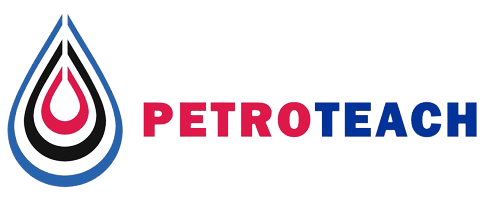GEO 107
Advanced Reservoir Geochemistry
The course addresses the principal concepts and applications of reservoir geochemistry used in evaluating, and producing hydrocarbon (oil and gas) reservoirs.


The course addresses the principal concepts and applications of reservoir geochemistry used in evaluating, and producing hydrocarbon (oil and gas) reservoirs.

| Code | Date | Location | price (€)* |
|---|---|---|---|
| GEO 107 | 16 – 20 Feb 2025 | Online | 1990 |
| GEO 107 | 22 – 24 Jul 2025 | Online | 1990 |
| GEO 107 | 21 – 24 Jan 2025 | Kuala Lumpur | 3990 |
| GEO 107 | 17 – 21 Aug 2025 | Dubai | 3990 |
* Prices are subject to VAT and local terms. Ph.D. students, groups (≥ 3 persons) and early bird registrants (8 weeks in advance) are entitled to a DISCOUNT!
The course addresses the principal concepts and applications of reservoir geochemistry used in evaluating, and producing hydrocarbon (oil and gas) reservoirs. Emphasis is placed on the practical application of geochemistry in solving development and production problems and will aid reservoir geologists, geophysicist and reservoir engineers accordingly. Specific topics include the origin of petroleum, petroleum systems, hydrocarbon (oil and gas) alteration and prediction, reservoir continuity and charge history monitoring. Typical case studies using Geochemistry as development and production tool, are used during the course.
The first day introduces the participants introduction, fundamental aspects and basic applications of geochemistry including: hydrocarbon systems, composition, and methods. Review of laboratory methods including Rock –Eval Pyrolysis, Soxhelt extraction, Column Chromatography, asphaltene precipitation, GC, GCMS and Head Space Gas analysis and fluid inclusion microthermometry with sample problems. The second day of the course starts with biomarker bulk correlation parameters. Evaluation techniques used to assess quantity, quality, maturation of generated hydrocarbons. Primary, secondary and tertiary migration of hydrocarbon and migration mechanisms. Insitu-alterations of oil, Biodegradation (oil+gas) and Interpretive pitfalls and exercises will be discussed in the third day. This will include interpretation of GC and GCMS data. The fourth day of the course starts with Reservoir Geochemistry and case studies including case studies from the world’s giant oil and gas fields. Reservoir charge history with examples from sedimentary basins with sample problems. The last day of the course starts with an introduction dynamic reservoir geochemistry concept addressing reservoir continuity, compartmentalization, prediction of oil and gas properties, solid bitumen identification and production allocation.
o Objectives of Reservoir Geochemistry and its role in E&P
o Hydrocarbon composition and methods:
review of laboratory methods including Rock –Eval pyrolysis, soxhelt extraction,
column chromatography, asphaltene precipitation, GC, GCMS, head space
gas analysis and Fluid inclusion microthermometry
parameters
o Quantity and quality assessment
o Thermal maturity evaluation
o Oil to oil and oil to source correlations
using biomarkers and diamondoids
o Data interpretation (geochemical logs)
o Hydrocarbon migration and mechanisms
o Exercises
o Overview
o Water washing and Bacterial Biodegradation
o Thermal cracking
o Cap rock leakage
o De-asphaltening
o Evaporative Fractionation
o Exercises
o Reservoir souring
o Bacterial Sulfate Reduction (BSR)
o Thermochemical Sulfate Reduction (TSR)
o Thermal regimes
o Oil/gas properties prediction
o Reservoir continuity and compartmentalization
o Assessing solid reservoir bitumen
o Production allocation
o Exercises

Mohammadreza Kamali holds PhD degree in Petroleum Geology/Geochemistry from the University of Adelaide, Australia and has accumulated over 30 years of experience working for NIOC, Research Institute of Petroleum Oil Industry, South Australian Department of Mining and Energy, and The Universities of Tehran, AmirKabir, Sharif, Petroleum University of Technology. He is currently Adjunct professor at Curtin University, Australia. Mohammadreza is the principal author of several books published chiefly in petroleum geochemistry and over 85 research articles in international journals. He has many years international collabooration experience with companies including: SHELL; TOTAL and Schlumberger; Hydro and Statoil (Norway); Nippon Oil Exploration and JOGMEG (Japan) and universities: Queensland (Australia); Nancy (France); Leoben (Austria); Aachen (Germany) and TU Delft (the Netherlands). He is a member of AAPG, SPE, EAGE and ISPG.
This course is designed for exploration geologists but could also benefit geochemical coordinators,
managers and development geologists.
Advance
The participants will learn:
On completion of this course, participants will be able to understand:
• Interpretation of Gas Chromatography, Gas Chromatography and Mass Spectrometry
data using reservoirs samples
• Type and maturity of precursor organic matter using distinct biomarkers
• Causes of in-situ Oil Alterations
• Gas chromatography, gas Occurrence of microbial and thermogenic gases
• Interpretation of data relevant to fluid inclusions, biomarkers, stable isotopes and
diamondoids.
• Pitfalls to correct interpretations are illustrated using in-class exercises.
Registration is now OPEN!
* Prices are subject to VAT and local terms. Ph.D. students, groups (≥ 3 persons) and early bird registrants (8 weeks in advance) are entitled to a DISCOUNT!
For more details and registration please send email to: register@petro-teach.com
Would you like a PetroTeach training course delivered at a time or location to suit you?
click for request in house